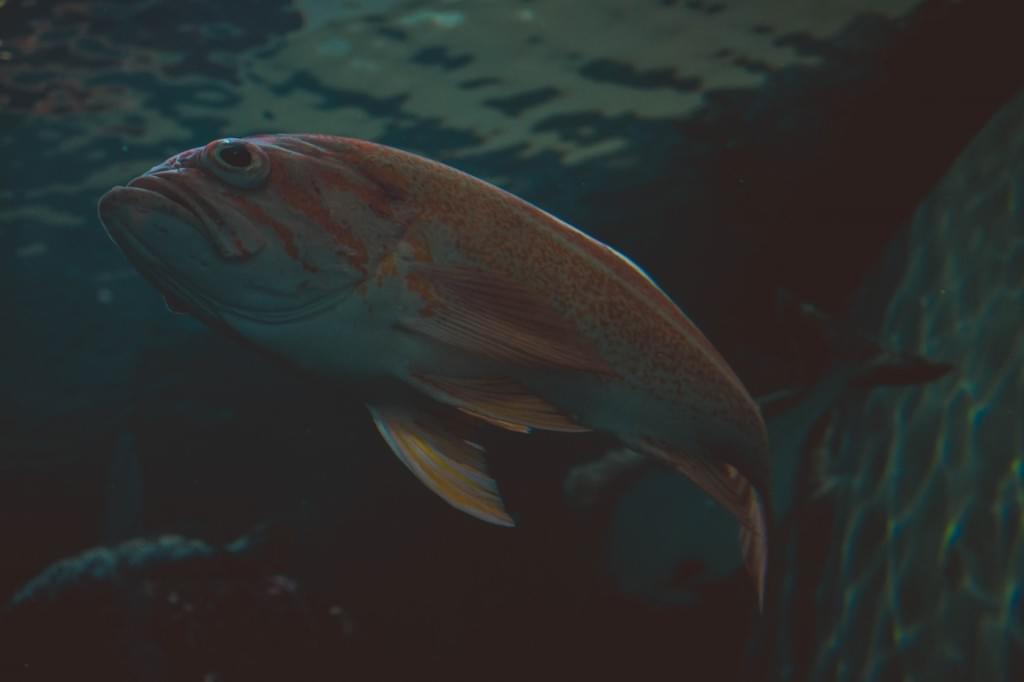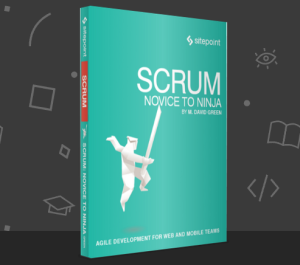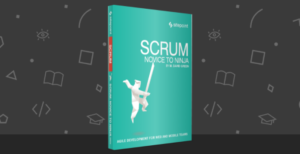
It should come as no surprise that a vast amount of time and money is spent gathering endless scientific evidence to tell us how to eat and live, but what is surprising is that the findings are often very contradictory, and as a result, we’re left confused and ill-informed about how we should stay healthy.
As some experts suggest, living healthily and functioning optimally (in both body and mind) is as easy as eating and living like our ancestors did, before the Neolithic Revolution 10,000 years ago, before we started to farm grains and leave our hunter-gatherer lifestyles behind.
Eating like our ancestors means to eat what nature gave us. Essentially this is animals, insects and vegetation, and when you think about it, this should be rather easy for us since we no longer have to hunt food ourselves!
Mounting research, clinical evidence and revelations as to why official advice has worked so poorly over the past few decades seem to make it clear that emulating the way we ate for the vast majority of our evolution is a good idea. But there’s still some condescension from part of the media, which is quick to point out that the old way isn’t always the best way. That’s technically true, but it ignores that these approaches work not because they’re old, but because they reverse some of the recent, disastrous innovations in human food consumption.
It seems as if we’d mostly rejected this way of living because we’re so enticed by modern-day fad diets that would rather take our money than help us live longer, healthier lives. However, we’re now starting to see diets like paleo, keto and primal gaining in popularity, and these diets outline the ways that we can eat and live like our ancestors for optimum health and productivity.
What do these diets consist of? Let’s take a look.
Sisson’s Primal Blueprint
Former runner and triathlete Mark Sisson discovered (from his own first-hand experiences) that following the same lifestyle “blueprint” our ancestors followed ⏤ thousands of years ago ⏤ still greatly benefits us today. His modern-day Primal Blueprint is almost identical to the lifestyle lived by our ancestors and you can read about this in further detail in his book, The Primal Blueprint or on his site.
It’s made up of the following rules:
- Eat lots of animals, insects and plants
- Move around a lot, but at a slow pace
- Run really fast once in a while
- Lift heavy things
- Get lots of sleep
- Play (i.e. enjoy yourself)
- Get some sunlight every day
- Make use of your mind
- Avoid trauma and poisonous things
I won’t go into too much detail, but you may have noticed that some of these rules sound a little primitive or even downright obvious, but 10,000 years ago was a different time. While coming into contact with poisonous things was certainly something to avoid doing back then (and it still is, don’t worry!), nowadays that might apply to alcohol and substance abuse. Playtime would have meant practicing spear-throwing, but today that could be a soccer game.
In short, Sisson advocates a balanced diet and lifestyle similar to our predecessors. Eat plenty of protein (fish and eggs are great substitutes for vegetarians), eat plenty of vegetables, make sure you’re not sedentary (sitting down for too long), include rigorous exercise now and again, have fun (don’t stress yourself too much), avoid placing yourself in unnecessary danger (such as failing to wear a seatbelt), have lots of sleep to rest your body and mind, and avoid fast food, refined carbs and sugars and other harmful substances.
Why Refined Carbohydrates Are the Enemy
Have you ever noticed how tired and foggy your brain becomes once you’ve eaten a carb-y meal such as pizza? That happens because our ancestors never ate bread and other grains, and so our bodies never evolved to “understand” those types of refined carbohydrates. Simply put, your body has to work overtime to digest these unnatural foods. In terms of evolutionary biology, we haven’t caught up to that yet!
As you may have guessed, your body becomes exhausted and highly unproductive when it has to work overtime to digest the foods or handle the blood glucose levels that we’ve not yet evolved to handle ⏤ this can even lead to food intolerance and have adverse effects on both your physical and mental health, including frequent headaches and other uncomfortable symptoms that can seriously hinder an entrepreneur’s peak performance.
Let’s discuss the other two diets, paleo and keto.

Paleo
Although very similar to Sisson’s Primal Blueprint in the sense that it recommends eating the way our ancestors ate (lots of vegetables, meat, et cetera ⏤ but no grains and refined sugars and carbs), a paleo diet differs in a couple of ways. The most significant difference is their stance on saturated fats. Loren Cordain (the founder of the paleo diet) sees saturated fat as a cause of high cholesterol and heart disease, particularly when other factors aren’t controlled.
Sisson, on the other hand, argues that our ancestors were discovered to have eaten the whole animal (including the brains!) and only left the carcass, meaning they consumed these fats that are today deemed unhealthy. On top of that, Sisson argues that there are neurological benefits to the nutrients gained from these fats that outweigh their cons. This is something that may be of interest to an entrepreneur who wants to keep his brain fully functional!
So while paleo focuses solely on diet, primal focuses on lifestyle as a whole; what diet you ultimately choose mostly comes down to your individual health needs. For example, since a paleo diet limits your saturated fats, it may be a better choice for those with a history of high cholesterol or heart disease, whereas a primal diet is arguably better for productivity and brain-power.
Keto
A ketogenic (“keto” for short) diet is a low-carb, high-fat diet consisting of 60-75% fat, 15-30% protein and only 5-10% carbs. The most common macronutrient split in practice is 65% fat, 30% protein and 5% carbs. The aim of a keto diet is to get your body in a state of ketosis (burning ketones instead of carbohydrates for energy). This can only occur when your carbohydrate levels are 50 grams a day or lower.
The keto diet is similar to paleo and primal diets in the sense that carbohydrates should be kept to a minimum. Although a keto diet does allow complex carbs (the good kind), the hard limit on carb intake to maintain ketosis means including them is often impractical (as well as processed carbohydrates for instance, you should also be cautious of carb-y root vegetables such as sweet potatoes and carrots). Only net carbs are counted, so you can eat plenty of fibrous vegetables like broccoli.
Besides that, the keto diet isn’t overly strict on dairy products because they’re also viewed as a good source of fat, which as you may recall, is quite different to the paleo diet. This may make it more suitable for a vegetarian due to the larger number of non-meat alternatives for protein and fat.

Scientific journalist Gary Taubes backs the keto standpoint. In his book, Good Calories, Bad Calories: Challenging the Conventional Wisdom on Diet, Weight Control and Disease, he explains what he calls the “alternative hypothesis”. His hypothesis being that the widely-held belief that fat alone causes diet-related disease, obesity and mental illness is a lie. Instead he blames carbohydrates for this, and that’s why all three of these diets (primal, paleo and keto) stand firmly against processed carbohydrates.
You can find out more about getting started with keto here.
Ketones and Brain Functionality
It has been suggested that keto diets are not only suitable for weight loss but are also good for brain functionality, which ultimately results in terrific mental health and heightened productivity. The foods that the keto diet consists of have been found to contain many vitamins and minerals that have a significant nootropic (brain enhancing) effect. I won’t go into too much detail about these foods, but here is a previous article I wrote on the subject for some more insight.
But beyond that, the way your brain and body work in a state of ketosis is known to have a profoundly nootropic effect. In short, when our liver breaks down fatty acids, it produces ketones. The main three are hydroxybutyrate, acetoacetate and acetone. When cells burn either glucose or ketones for fuel, it is converted to ATP (adenosine triphosphate). This substance is what our cells use for fuel. The ketone hydroxybutyrate has been shown to improve the process (cellular respiration) by which ATP is produced, therefore suggesting that a keto diet increases levels of ATP in the brain.
Other than enhancing energy production, ketosis provides unique neuroprotective and regenerative benefits.
Paleo is still a healthy option, but keto and primal are the two diets entrepreneurs may be leaning towards for higher brain-power, and as a result, productivity.

Let’s Summarize
- Paleo: Encourages lean meat over saturated fats
- Keto: encourages saturated fats and dairy — primarily focuses on macronutrient levels instead of specific foods
- Primal: allows saturated fat and also includes a more holistic view on lifestyle
- All: carbs in strict moderation and no refined foods
Conclusion
Our ancestors evolved to become strong, intelligent beings because they lived active lives and they ate what nature meant for them to eat. Although they may not have been entrepreneurs and businessmen, they kept their minds sharp by problem solving, such as working out how to drive cattle over a cliff to feed their communities. Without the omega fatty acids they consumed through eating the organs and meat of other animals, we also wouldn’t have the developed evolved brains that we do today.
Eating bad food is like running Internet Explorer 6 ⏤ it’ll work, but not very well.
 Rebeka Bergin
Rebeka BerginI’m a nutritionist and lifestyle blogger at Nomad Noms, currently writing nutrition guides for digital nomads whilst travelling the globe with my husband.



